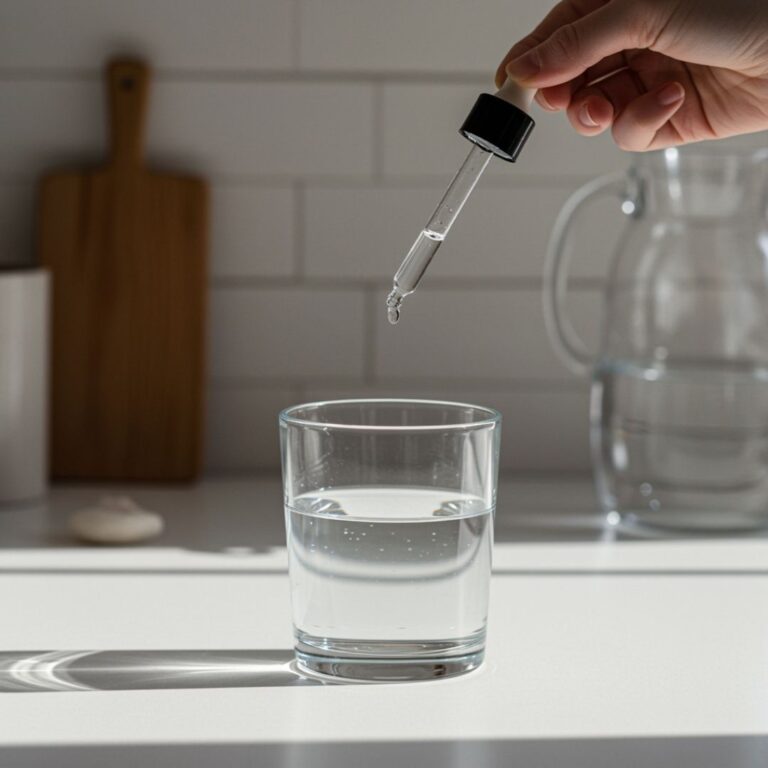Spring Water vs Distilled Water: The Biggest PROBLEMS
Spring Water vs Distilled Water
Spring water vs distilled water, which is best? Find out below!
Spring water comes from an underground source, from which the water naturally rises to the surface. Although the water must naturally rise to the surface to be classified as natural spring water.
Good quality spring water will usually go through several filter stages to remove particles and other unwanted elements. This doesn’t remove minerals. Filters can act as cleaning agents and ensure that only the water passes through. It is important to remember that this does not mean that the spring water is altered in any way.
Once it passes through the filtration system, it still has all the beneficial minerals and natural properties that give the water its great taste.
The Biggest Problem with Spring Water
Spring water is natural water from underground springs. There is usually no extra filtration process or minerals added to spring water, so you can drink clean, spring, and healthy water as it is obtained from nature.
![]() Completely natural spring water will not be mechanically filtered so it may harbor harmful bacteria and parasites if you drink it directly. However, bottled spring water will be lightly processed and filtered to remove waste, and kill bacteria and other microbes.
Completely natural spring water will not be mechanically filtered so it may harbor harmful bacteria and parasites if you drink it directly. However, bottled spring water will be lightly processed and filtered to remove waste, and kill bacteria and other microbes.
The Biggest Problem with Distilled Water
![]() Distilled water is a technical process that removes everything from water. Both good and bad. It’s completely pure but has nothing in it. As a result, many people consider it to be ’empty’ water as it lacks any nutrients and any taste.
Distilled water is a technical process that removes everything from water. Both good and bad. It’s completely pure but has nothing in it. As a result, many people consider it to be ’empty’ water as it lacks any nutrients and any taste.
What Is Spring Water?
Spring water comes from natural springs, freshwater ponds, and streams, which originate from underground aquifers and exist in different sizes in most parts of the world. Some sources are better known than others for their drinking water, and the natural mineral content can vary dramatically from one place to another.
Spring Water Benefits
It is believed that spring water is one of the safest types of drinking water, with some good health benefits. It is pure and natural and contains all the essential minerals that the human body needs. Natural spring water is free of toxins. It has the ideal mineral composition that the human body needs.
It is drinking water in its most natural and raw form – the way in which nature intends. This water is safe for people of all ages.
Spring water has a very refreshing taste. Coffee, tea, and other drinks made from it also taste great.
Drinking spring water is a good option, as it is the most natural and purest water and contains many essential minerals our body needs:
-
- Good quality spring water contains no toxins and promotes the growth cells due to its perfect mineral composition.
- Spring water is low in magnesium and calcium and has a perfectly balanced PH of 7.5
- Water from the spring is 100% free of contaminants or toxins.
- Drinking spring water is drinking water in its raw and natural state – as nature intended.
- Spring water tastes great and also makes tea and coffee taste better.
- Buy spring water that is bottled in glass instead of plastic bottles so that it does not leach plastic or BPA chemicals into your drink. If you do not want to buy bottled water, invest in a reverse osmosis filter for the same effect.
Spring Water Composition
Water from the spring is unique because of its purity and its composition of minerals and trace elements. The most important minerals in this natural drinking water are:
- Sodium
- Magnesium
- Calcium
- Potassium
These minerals are present in the right amount that the human body needs. Studies have shown that drinking water containing the right concentration of these minerals can help prevent a variety of health conditions. Therefore, you should look for a source water supply service that delivers natural water that has not been treated or altered from its original composition, or it may have a lack of minerals.
What Is Distilled Water?
Distilled water is produced by the distillation process. Basically, in the distillation process, pure H2O is removed from its impurities.
Many of the contaminants found in water (especially tap water) are inorganic minerals, metals, etc. These types of contaminants have very high melting points and even higher boiling points (much higher than the boiling point of water at 212 degrees F).
When the water (with its pollutants) is boiled, the pure water becomes steam and is captured and cooled to become distilled water.
The garbage that remains is all pollutants while the water becomes 100% pure and empty.
Is Distilled Water Completely Safe?
The short answer, yes.
There are many volatile organic compounds in water and many of them have lower boiling points than pure water (such as pesticides or herbicides and many other volatile chemicals that have names that are too difficult to pronounce, let alone spell out).
The point is that when the water heats up, the pure water evaporates and leaves everything else behind.
Therefore, what’s left behind is only pure clean safe drinking water.
Spring and Distilled Water Comparison Table
| Mineral Water | Distilled Water |
| Contains minerals. | Does not contain minerals. |
| May contain trace contaminants (in safe quantities). | 100% pure and clear of all contaminants and bacteria. |
| Safe to drink. | Safe to drink. |
Spring Water and Distilled Water: Which Is Best?
So, spring water vs distilled water, which is best? The short answer is it depends.
If high levels of water purity are important to you then choose distilled water.
If water with minerals and nutrients is what’s most important to you then spring water is better.
Unlike tap water, which is regulated by the Environmental Protection Agency (EPA), bottled water is regulated by the Food and Drug Administration (FDA) and is subject to high government health standards.
The best spring water sources come from springs that flow freely in the mountains. This water is fully alkaline by nature and has not been touched by civilization.
In some cases, the water has been flowing from these mountains for millions of years and is clean and has the perfect balance of minerals. The source of this water is the rain and snow that has formed on the mountain and seeps through it to reach the subterranean springs.
Distilled water is pure H2O that is totally empty because all of its impurities are removed through a process of condensation. While a lot of people think that water is water, this couldn’t be more false!








